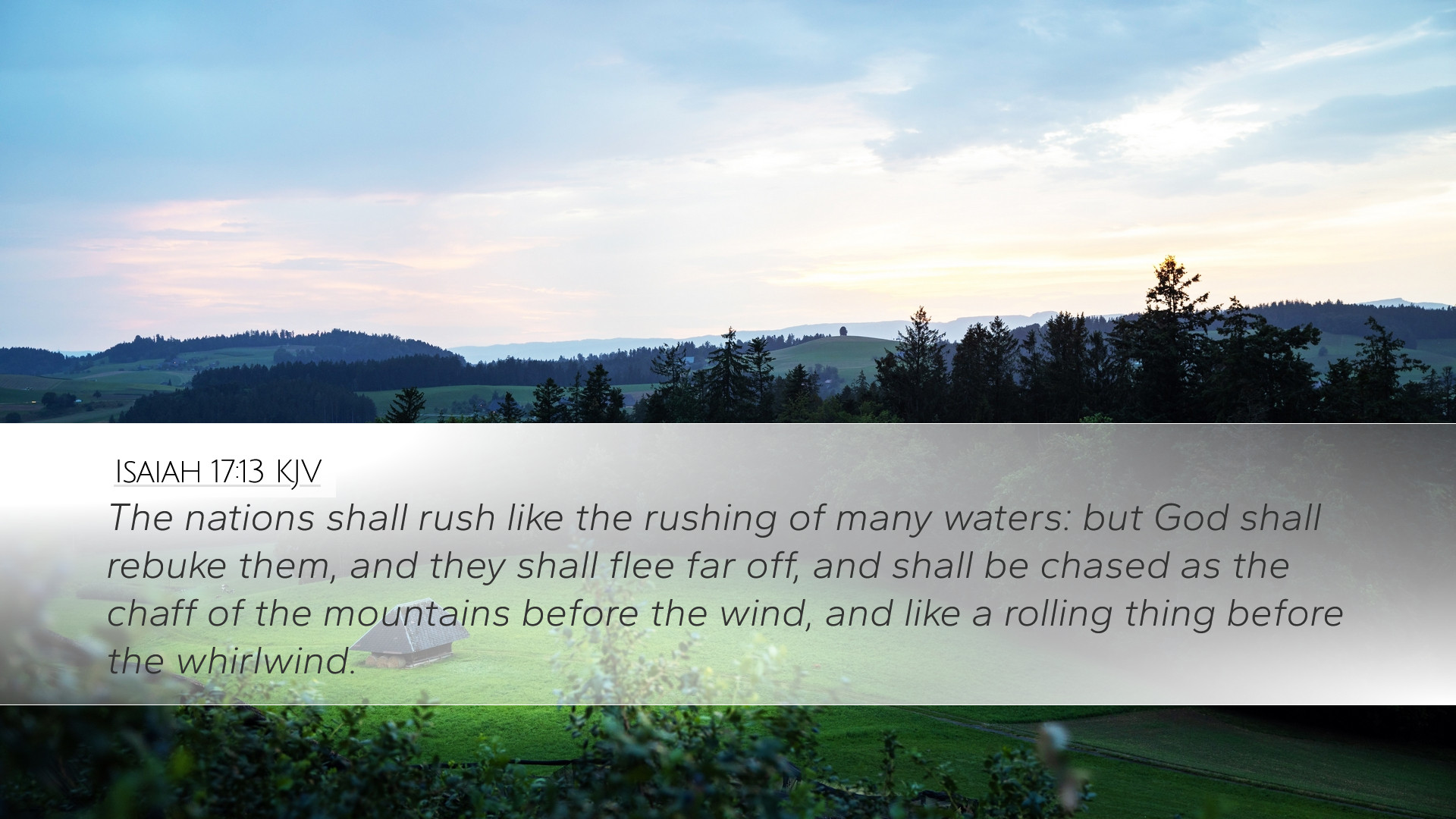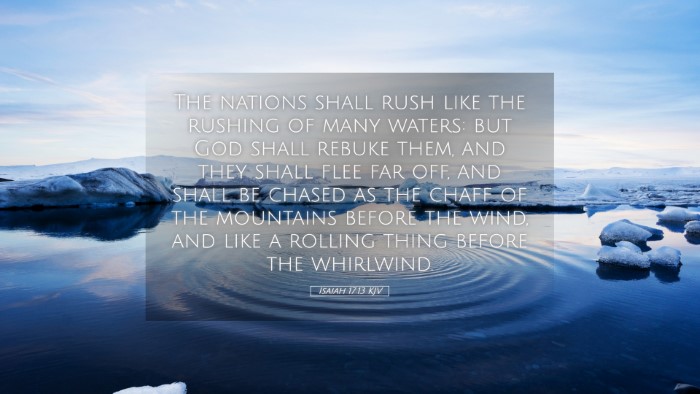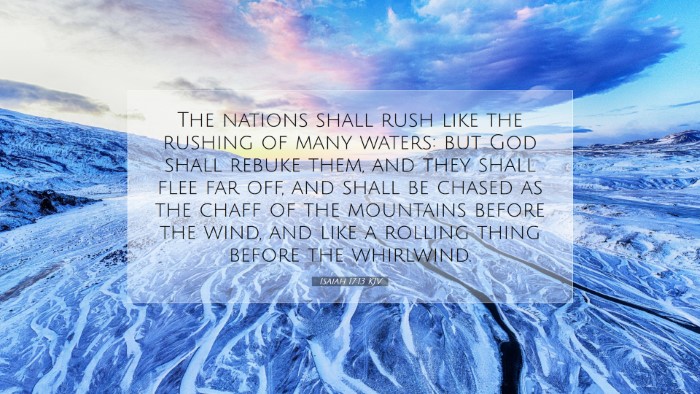Commentary on Isaiah 17:13
Verse: "The nations shall rush like the rushing of many waters: but God shall rebuke them, and they shall flee far off, and shall be chased as the chaff of the mountains before the wind, and like a rolling thing before the whirlwind."
Introduction
This verse from Isaiah offers a vivid metaphor regarding the impending judgment on nations that rise against God's people. It exemplifies God's sovereignty over the tumultuous actions of nations and illustrates the futility of opposing divine will.
Contextual Background
Isaiah prophesied during a time of significant political upheaval in Israel. The invasion threats from neighboring nations pressed heavily upon Israel. This chapter, part of Isaiah's burden concerning Damascus and Israel, speaks directly to God's control over both their fates. The prophet uses striking imagery to convey the power and authority of God in rebuking and overthrowing hostile forces.
Analysis of the Text
The verse begins with an image of nations rushing like many waters, which can be interpreted as overwhelming and chaotic. This imagery is not unfamiliar in Scripture, often symbolizing power and ferocity:
- Matthew Henry Commentary: Henry notes that the rushing waters signify the tumult of nations, representing hostility and conflict aimed at God's people. The comparison emphasizes the alarming threat that these forces pose, yet it underscores God's action in response.
- Albert Barnes Commentary: Barnes emphasizes that while nations may appear powerful and threatening—like a deluge—they will ultimately be rebuked by God, disbanding and scattering like chaff.
- Adam Clarke Commentary: Clarke highlights the temporary nature of such threats. He explains that the nations vehemently pursue their aims but will be thwarted by God's intervention.
The Concept of Divine Rebuke
The latter part of the verse emphasizes God's rebuke, which serves as a powerful tool in Scripture. God's word is likened to a sword that pierces and divides:
- Matthew Henry: The rebuke signifies God's command and the execution of His will. Henry suggests that no matter how chaotic the world turns, divine authority prevails.
- Albert Barnes: Barnes discusses the implications of God’s intent, depicting that nations may gather in their wrath but quickly flee when faced with the divine response, signifying both defeat and fear.
- Adam Clarke: Clarke remarks on the imagery of the chaff of the mountains. Chaff is light and easily scattered—just as the nations will be scattered before God’s might.
Imagery of being Chased as Chaff
The conclusion with the image of being chased like chaff before the wind evokes themes of impermanence and vulnerability:
- Matthew Henry: Henry illustrates that chaff is a metaphor for the weak condition of nations against God's power. It indicates that they lack substance and are easily swept away.
- Albert Barnes: Barnes similarly points out that just as chaff cannot withstand the force of the wind, these nations will find their plans nullified by divine intervention.
- Adam Clarke: Clarke adds that the whirlwind represents an unstoppable force, and it is key to recognize the futility of their rebellion against God.
Theological Implications
From a theological perspective, this passage prompts reflections on God's sovereignty and the ultimate fate of nations:
- The sovereignty of God manifests in the ability to command and control the outcomes of history.
- The reassurance for believers, demonstrating that regardless of the tumult and chaos surrounding them, divine protection and authority are paramount.
- Encouragement towards faithfulness, knowing that God will ultimately bring justice to those who oppose His people.
Conclusion
Isaiah 17:13 serves as a profound reminder of God's omnipotence in times of distress. Through the imagery of rushing waters and chaff, the verse encapsulates the certainty of God's rebuke of nations that stand against Him. As believers study this passage, they are invited to trust in the sovereignty of the God who rebukes the chaos of the world and upholds His promises. Thus, Isaiah provides both forewarning and encouragement, a call to maintain faith amidst adversity.


